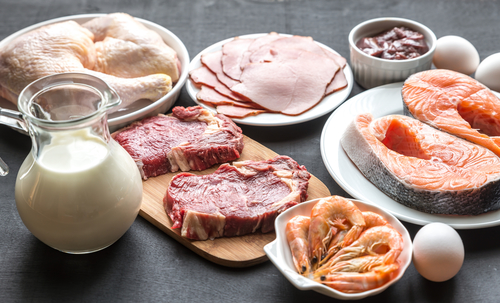How to Reduce Your Risk of Getting Food Poisoning
Food is an essential part of your daily life, so it’s important to make sure that you’re not getting sick from any food that you eat.
According to the CDC, an estimated 48 million people become sick each year due to foodborne illnesses. This means that you have a good chance of contracting one if you’re not careful about how you handle and prepare food.

Some foods are riskier than others, but this can be mitigated by practicing good food safety and understanding what the dangers are. There are many different ways that you can get food poisoning and it’s important to consider all of them.
Let’s take a look at a few fantastic ways of reducing your chance of being affected by a foodborne illness.
Understand What Foods Are Problematic
The first thing you’ll want to know is what foods cause the most problems.
This mainly applies to meat, seafood, dairy, eggs, and prepared fruits. All of these foods have a higher risk of developing bacteria that lead to food poisoning.
However, these aren’t the only foods that can give you a foodborne illness. Improper handling with any food, like failing to refrigerate an item that requires it, can also make you sick.
The foods mentioned above just tend to develop bacteria much quicker than others, which is why you need to keep a close eye on them.
Wash Your Hands Frequently
You should also make sure to wash your hands often.
This is always important before you start cooking because you’ve likely touched several things in your house since last washing your hands. Bacteria is everywhere and you don’t want it to spread to your food!
Hand washing is particularly important when you touch raw meat, like chicken and beef. You can cook meat properly and not have an issue with it, but if you transfer bacteria from raw meat to something like vegetables, then you can get sick from cross-contamination.
You’ll also need to avoid using anything that touches raw meat with other foods. Knives, cutting boards, bowls, and anything else that comes into contact with raw meat should be sanitized before using it with other foods.
Fully Cook Food
Another thing to be careful about is ensuring to fully cook your food.
This isn’t necessarily a problem with foods that don’t need to be cooked, like several vegetables and fruits, but more so with items that require cooking, like meat.
To make meat safe to eat, it must be cooked to the proper temperature.
Steak, pork, and fish must all reach an internal temperature of at least 145ºF to be safe. Any ground meat needs to reach 160ºF. Chicken and turkey have the highest requirement at 165ºF.
The safest way to test your food is with a meat thermometer stuck directly in the middle. Failing to fully cook your meat is almost guaranteed to make you sick!
Avoid Expired Food
This one may seem obvious, but it’s also easy to overlook. Be careful that you don’t eat any expired food!
Even if food still looks good, if it’s past the expiration date, then there’s a good chance it will give you food poisoning.
This means that you’ll need to physically check the expiration dates of your food before eating them. Some foods expire extremely quickly, while others can last for years if stored properly.
It’s also important to note that expiration dates are not always accurate. If food is moldy, smells sour, looks weird, or tastes funky, then don’t eat it!
Be Cautious When Eating Out
One final thing to keep in mind is that you need to be careful when eating out. You can practice perfect food safety when you’re at home, but you aren’t in control when eating at a restaurant.
This might seem impossible to avoid because you usually can’t watch the kitchen as they’re working. Instead, you should look at the food safety rating of the restaurant, which can be found online or often posted outside.
Additionally, pay attention to the cleanliness of the establishment. If it’s dirty or poorly kept, then you can’t expect the kitchen to be very clean, either.
When your food is delivered, make sure to check that it’s fully cooked. Don’t eat anything that is undercooked and make sure to send it back!
Closing Thoughts
Foodborne illnesses like food poisoning are incredibly common, but often easy to prevent.
There are a few tips that you can use to lower your chances of getting sick.
This includes being especially careful with high-risk foods, frequent hand washing, cooking meat to the proper temperature, staying clear of expired goods, and exercising caution when eating at a restaurant.
There’s still a risk of getting sick from contaminated food no matter what you do, but these techniques will greatly lower your risk level.